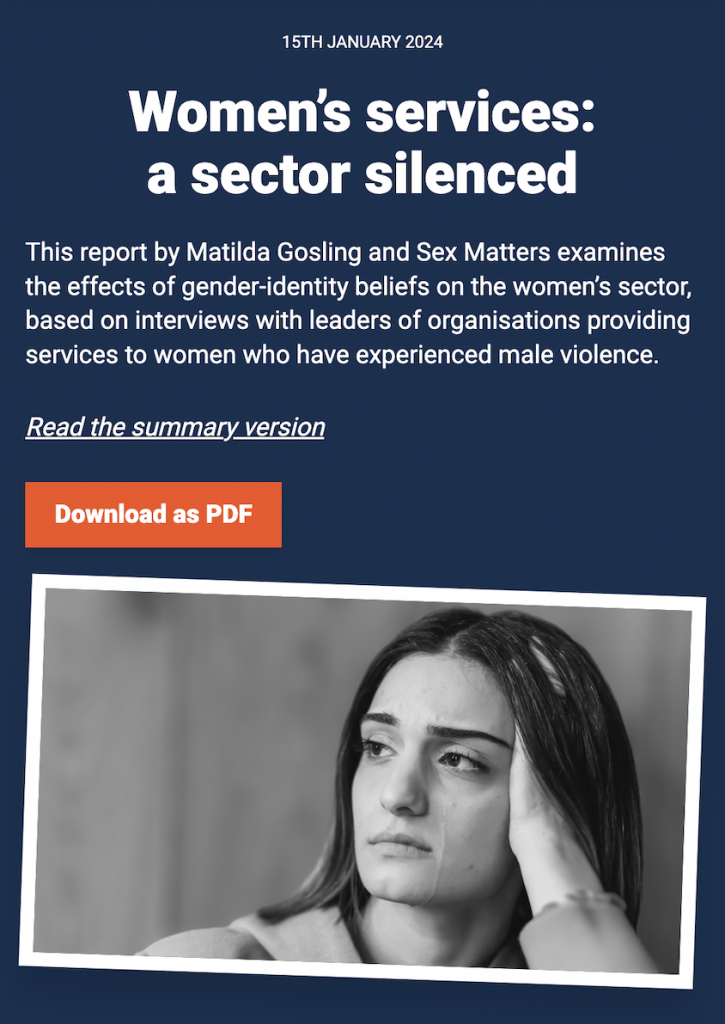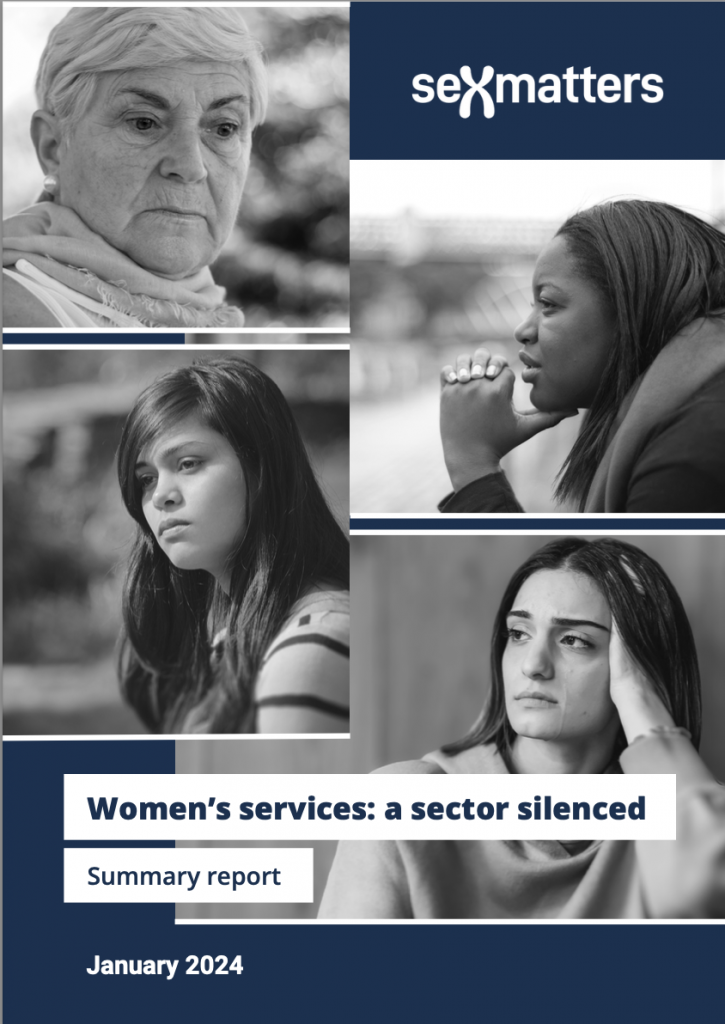Women’s services: a sector silenced – new report
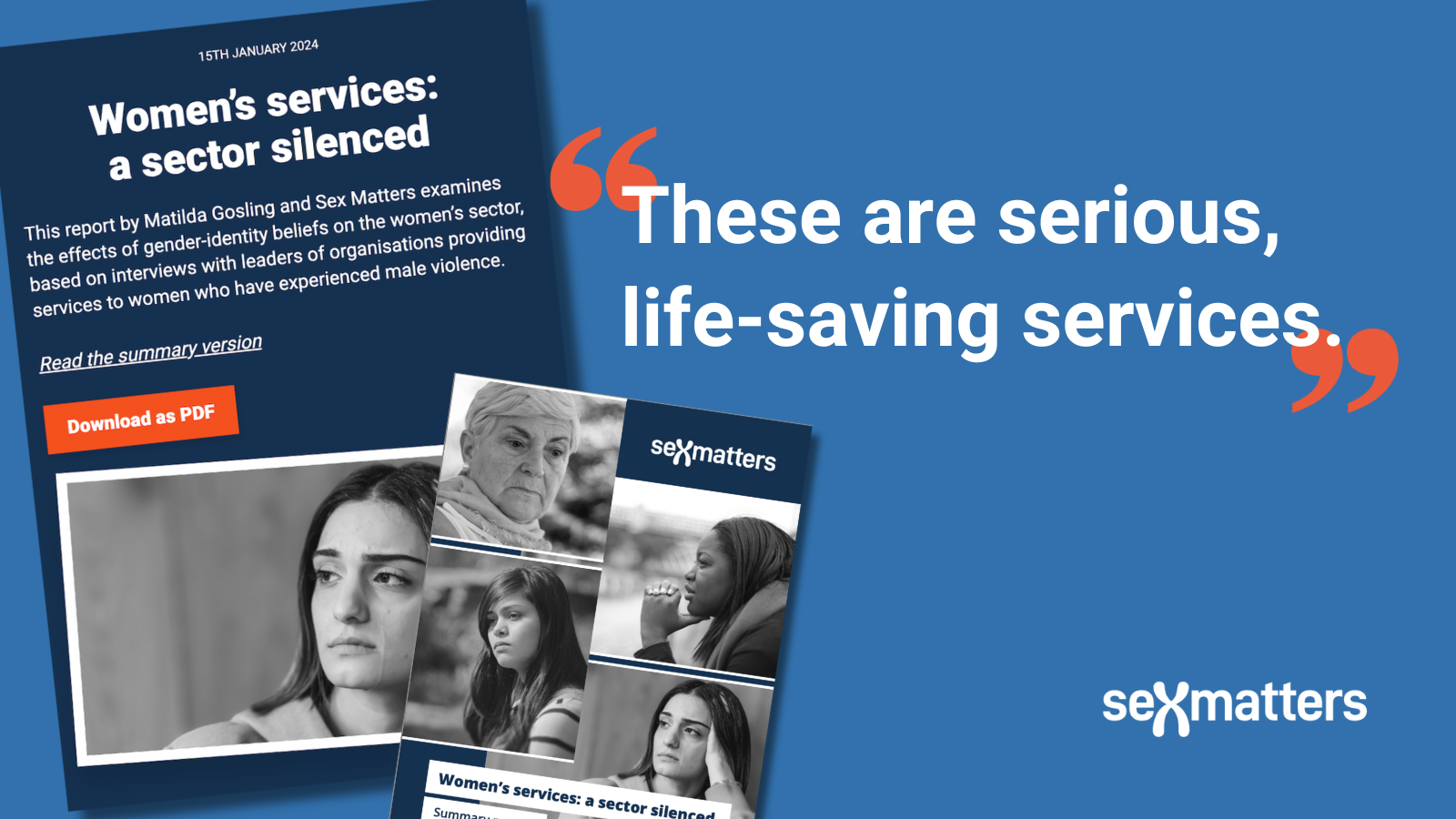
A major new report launched today by Sex Matters reveals in shocking detail that leaders in the women’s sector who advocate for female-only services are routinely subjected to investigations, ostracisation, bullying and employment loss, and have been pressured into adopting policies that compromise women’s welfare and safety.
Yet a new poll has found that the British public strongly backs single-sex support for women who have been the victims of rape, sexual assault or domestic violence, with 84% believing such women should have access to female-only services.
The report, titled Women’s services: A sector silenced, is the first of its kind globally. It is based on interviews with 19 experts and leaders in the sector from a wide range of organisations providing support services to women. These include rape-crisis centres, domestic-violence refuges and support services, support for trafficked women and women in prostitution, and prison and probation services that engage with female offenders, many of whom are survivors of abuse.
The lead author, social-science researcher Matilda Gosling, interviewed experienced sector leaders including Jess Phillips MP, Karen Ingala Smith and Shonagh Dillon.
Interviewees warned that the issues go far beyond the risk that women may be put at risk or be attacked. When women victims of male violence are left doubting whether a service is truly single-sex, and when they are banned from using clear language to talk about this, they may be retraumatised and fearful, and lose trust. They may self-exclude from support services. Children, refugees and asylum seekers, religious women and trans-identifying women face particular vulnerabilities when women’s support services are inclusive of male service users and employees.
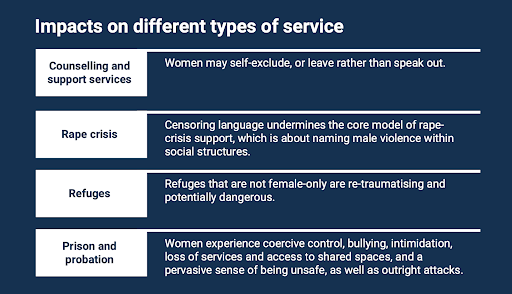
Key findings from the interviews
- Services for women and their children are being undermined. Women are made to feel unsafe and trust in the service is destroyed. Some women self-exclude if services are not female-only, and women’s and children’s safety and security are compromised.
- Sector leaders are being silenced. Sector leaders who stand up for clarity about sex face vitriolic personal accusations, investigations, disciplinary procedures and potential loss of employment. Leaders need great courage to defend single-sex services but risk loss of funding if they do. They are forced to make compromises that do not protect their services or the women who use them, and are unable to engage in vital discussion of how to meet different needs.
- Organisations are in turmoil. Decision-makers are hamstrung and internal cultures become toxic. Scarce time and financial resources are drained as boards and leaders spend significant time dealing with tension, complaints and conflicts around this issue.
- Services are compromised. Organisations cannot communicate about their services clearly or signpost referrals safely. Meaningful data and therefore knowledge about what is needed are lost. The only option may be to fudge the issue, and some organisations have resorted to providing single-sex services but telling funders and others that they are “inclusive”.
- The sector is losing clarity of purpose. There has been a loss of shared vision and mutual support across the women’s sector. Leaders of organisations that state clearly that they offer single-sex services feel undermined by those making ambiguous statements, and the sector as a whole is less able to state the value of women-only services.
- The public-policy environment is hostile. There is strong pressure from commissioners and funders to be “trans-inclusive”, and organisations that are clear about providing female-only services face competition from those that are ambiguous. Policies in the criminal justice system shape women’s services, and the public-sector equality duty and standards that should protect services that prioritise women’s needs are being used to undermine them.
- None of this helps trans and gender-questioning service users. There is pressure not to recognise the difference between women and men who identify as women. The needs of female detransitioners and vulnerable female survivors and prisoners self-identifying as transmen are being ignored.
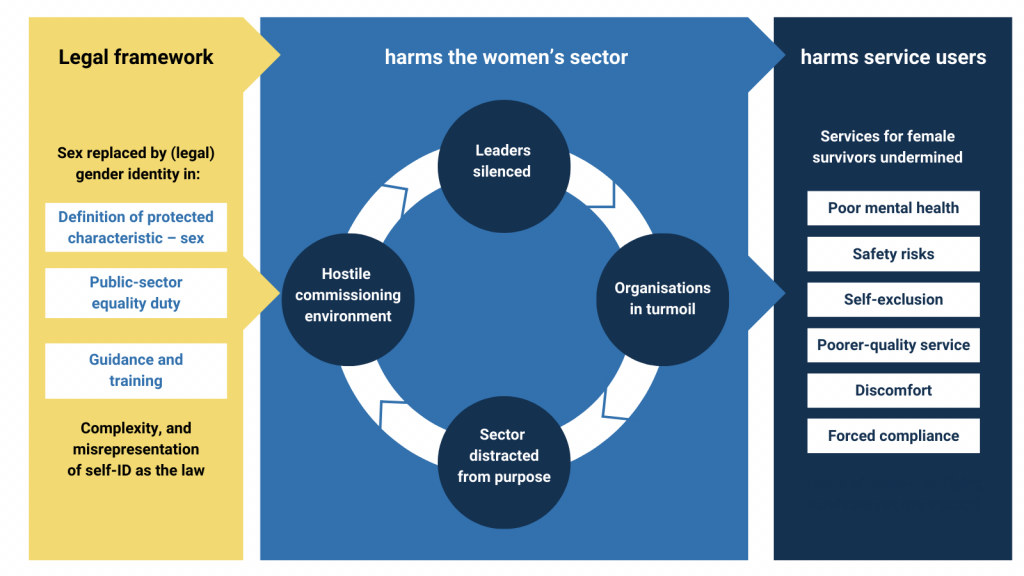
Case examples
Some interviewees referred to Katie Dolatowski, a trans-identifying male convicted of the sexual assault of a child. Dolatowski gained access to a trans-inclusive refuge for women and children in Leeds in 2022 by changing his name and identity documents.

Others highlighted that the Edinburgh branch of Rape Crisis Scotland is run by a trans-identifying male, Mridul Wadhwa, who has said publicly that “bigoted” rape victims with “unacceptable beliefs” on gender-identity ideology should be “challenged” and “re-educated” on transgender rights as part of their recovery.

Another case raised in the report is that of a woman who was sexually abused in her teens and wrote to NHS Brighton to request that she had only women care for her. She received a letter from the trust saying: “We consider this to be bigotry.”
Recommendations
We call on the UK government to fix the Equality Act and the Gender Recognition Act to ensure that women are protected as a sex and to allow for information-sharing. We also call on the government to provide clear guidance to people applying for gender-recognition certificates (GRCs), explaining what rights the certificate does and does not give.
Governments in England, Scotland, Wales and Northern Ireland should reform data-collection and reporting across the criminal justice system to be accurate about sex and make clear in victims’ codes that single-sex services are valuable and should be maintained.
Organisations that deliver rights under the victims’ codes should leave the Stonewall Champions scheme and review their training.
The Equality and Human Rights Commission should issue guidance and model policies for the women’s sector, and for organisations with statutory bodies with responsibilities under the victims’ codes.
The report also calls on charity regulators to issue clear guidance for the sector. Individual organisations should publish clear policies about their purpose, stating whether they provide single-sex or mixed-sex services.
We hope that this report will help to break the silence in the women’s sector and enable more people to stand up clearly for single-sex services and engage publicly with the debate on clarifying the definition of sex in the Equality Act.
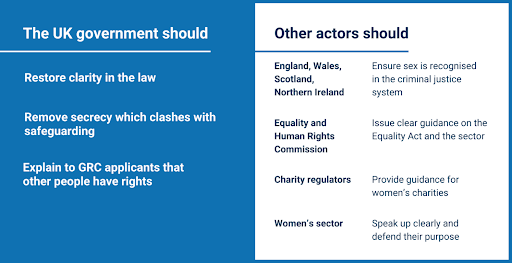
Public support
The People Polling survey found that 72% of the British population believe that women’s support services should state clearly whether they include male people who identify as women, and that 64% believe services should be allowed to exclude males who identify as women from female-only staff. Read the full poll results.
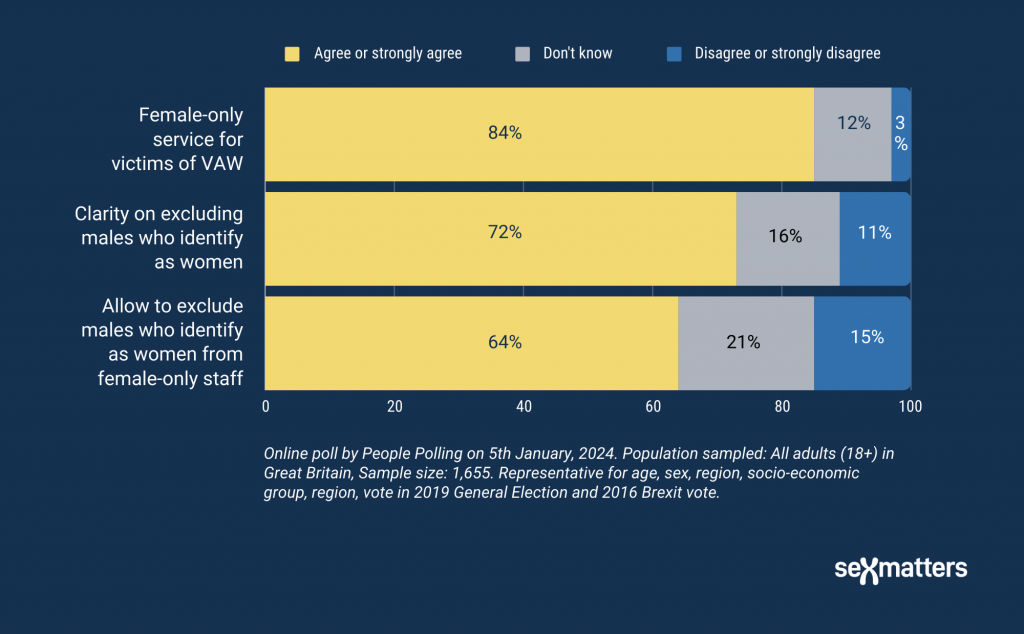
Statistics show that one in five women are victims of sexual assault (or attempted assault) in their lifetime, and that 98% of the adults prosecuted for sexual offences are men.

